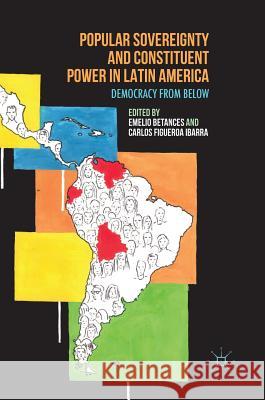Popular Sovereignty and Constituent Power in Latin America: Democracy from Below » książka
topmenu
Popular Sovereignty and Constituent Power in Latin America: Democracy from Below
ISBN-13: 9781137548245 / Angielski / Twarda / 2016 / 208 str.
This book combines a bottom-up and top-down approach to the study of social movements in relationship to the development of constituent and constituted power in Latin America.











